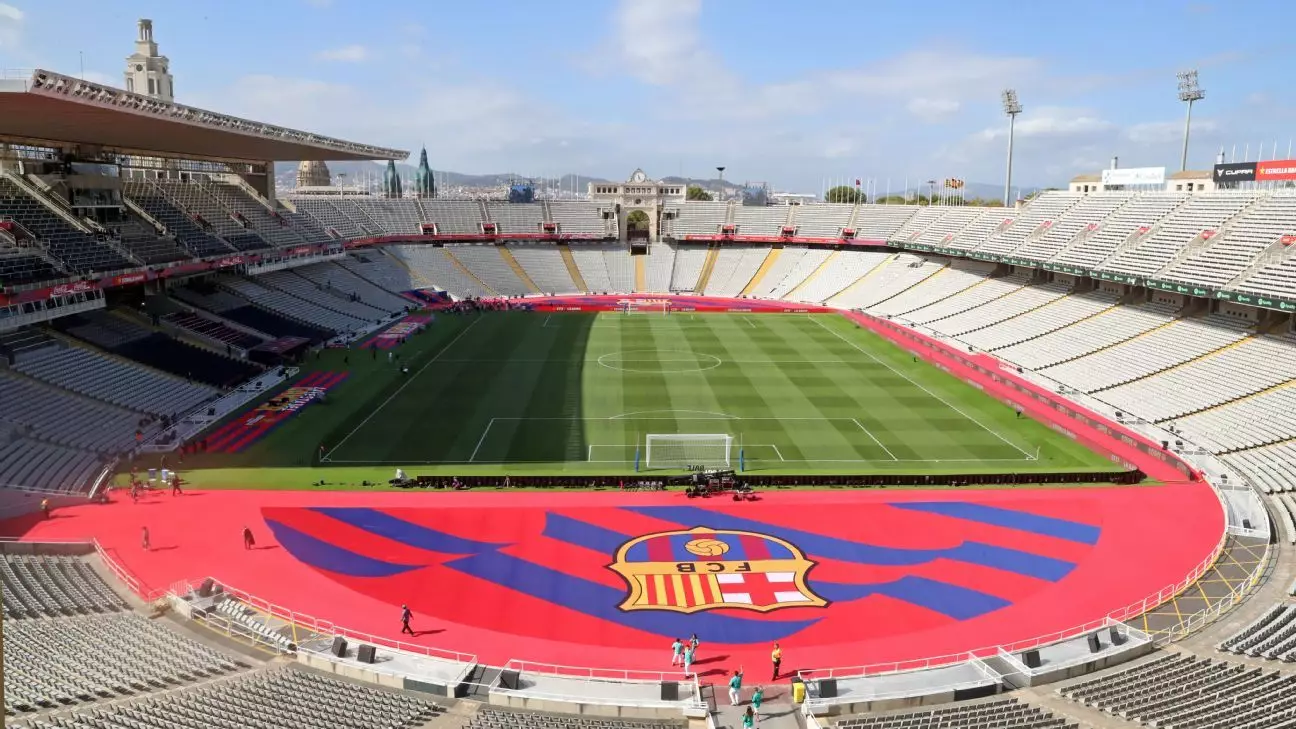Barcelona FC, facing ongoing renovations at their iconic Spotify Camp Nou, is grappling with a pressing need for a venue to host their matches. The club has put forth a request to extend their lease at the Olympic Stadium until the end of May, allowing them to secure a location for crucial games against rivals Real Madrid and Villarreal if the renovations are not completed in time. Originally, the club had anticipated a triumphant return to Camp Nou in November, but the delays have forced them to reconsider their timeline, now planning to potentially play at the Olympic Stadium until at least May.
The situation highlights the challenges that accompany significant upgrades to historic venues. While the intent was to enhance the stadium experience, the protracted renovation timeline has left Barcelona’s logistics in a precarious state. The club had strategically timed their renovation works, but unforeseen delays have created a ripple effect impacting their ability to maintain a competitive edge in the La Liga.
The expiring lease at the Olympic Stadium compounds the issue. With the lease set to conclude at the end of April, the club would risk being without a home for their last two key league matches. Complicating matters further, previously scheduled concerts by the Rolling Stones had blocked lease renewals; however, the postponement of these concerts has now provided Barcelona with a lifeline. Should their request for an extension be granted, it dispels recent speculation about the possibility of playing the Clásico abroad – a scenario that many fans and stakeholders hoped to avoid.
Barcelona is set to face Real Madrid in a high-stakes match on May 11, and the club hierarchy is acutely aware of the significance of this fixture, not only for league standings but also for the club’s identity and pride.
When Barcelona does eventually return to Camp Nou, it will not be business as usual. Initial attendance will be capped at around 60,000, as renovation efforts will still be in progress. Full completion of the ambitious renovation is anticipated by the summer of 2026, with plans to expand the stadium’s capacity to approximately 105,000, which would make it the largest stadium in Europe. This planned expansion reflects the club’s vision to enhance fan experience and solidify its status globally situated among vast football audiences.
In addition to their stadium woes, Barcelona is also navigating player transfers. Recently, Al Ittihad confirmed the signing of midfielder Unai Hernández for an initial fee of €4.5 million, with the potential for further earnings through performance-based add-ons. Hernández has been a standout player for Barcelona’s reserve side, making his departure another reminder of the strategic decisions clubs must make as they balance financial stability and competitive squads.
This combination of temporary venue uncertainty and ongoing player transitions underscores the complexities facing FC Barcelona as they strive to maintain their storied tradition amidst a transformative period. The coming months will be critical as they endeavor to navigate these challenges effectively.

